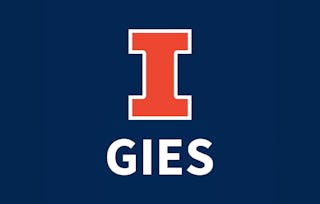This course is the second course in a two-part series on corporate and commercial law. In this part, we focus on three main topics: business organizations, business financing, and governmental regulation. In the first module, we discuss the characteristics of a number of the most common forms of business entities, such as corporations and LLCs. Module two is devoted to debtor-creditor relationships, including bank financing, debt financing, secured transactions, and bankruptcy. We wrap up the course with two modules that focus on the most important aspects of governmental regulation, including the process by which administrative agencies make rules, and the regulation of anti-competitive behavior and securities transactions.

Corporate & Commercial Law II: Business Forms, Financing & Governmental Regulation
5 days left! Gain next-level skills with Coursera Plus for $199 (regularly $399). Save now.

Corporate & Commercial Law II: Business Forms, Financing & Governmental Regulation

Instructor: Michael R Fricke
23,384 already enrolled
Included with
(392 reviews)
What you'll learn
Describe the rights, duties, and liability of partners in a partnership.
Determine the rules to be followed when pledging personal property as collateral for a loan.
Identify the key differences in each type of bankruptcy and how the bankruptcy process works.
Describe the process by which an administrative agency makes rules.
Skills you'll gain
Details to know

Add to your LinkedIn profile
37 assignments
See how employees at top companies are mastering in-demand skills

There are 5 modules in this course
In this module, you will become familiar with the course, your instructor and your classmates, and our learning environment. This orientation will also help you obtain the technical skills required to navigate and be successful in this course.
What's included
3 videos5 readings1 assignment1 discussion prompt
In this module, you will learn about the most common forms of business organizations. Beginning with sole proprietorships and moving on through various forms of partnerships, corporations, and limited liability companies, we will discuss how each type of business entity is formed and how it operates. By the end of this module, you will be able to differentiate between the most important types of business organizations and understand which form is most appropriate for achieving certain business goals.
What's included
8 videos1 reading9 assignments
In this module, we will learn about the laws that govern the relationship between a lender and a borrower. We will discuss the basics of bank financing and debt financing, with special attention paid to loans that are secured by collateral consisting of personal property. We wrap up the module with several lessons explaining the bankruptcy process, and how debtors and creditors navigate the three most common forms of bankruptcy.
What's included
9 videos1 reading9 assignments
In this module, you will learn about administrative agencies and how they regulate many aspects of business. We will talk about how agencies make rules and then how they enforce those rules. Then we will look at a series of important federal agencies and learn about how they operate within the scope of their authority. By the end of this module, you will understand the basics of the administrative rule-making process and know some of the primary regulatory activities of the FTC, CFPB, FDA, and EPA.
What's included
7 videos1 reading8 assignments
In this module, we continue our discussion of administrative regulations from the previous module, focusing specifically on antitrust and securities regulation. Prohibiting anti-competitive behavior and ensuring fair securities transactions are two of the most important ways the government regulates commerce. By the end of this module, you will understand the basics of federal antitrust and securities laws.
What's included
10 videos4 readings10 assignments1 discussion prompt
Build toward a degree
This course is part of the following degree program(s) offered by University of Illinois Urbana-Champaign. If you are admitted and enroll, your completed coursework may count toward your degree learning and your progress can transfer with you.¹
Instructor

Offered by
Explore more from Business Essentials
 Status: Preview
Status: PreviewUniversity of Illinois Urbana-Champaign
 Status: Free Trial
Status: Free TrialUniversity of Illinois Urbana-Champaign
 Status: Preview
Status: PreviewUniversity of Pennsylvania
 Status: Free Trial
Status: Free TrialUniversity of Illinois Urbana-Champaign
Why people choose Coursera for their career

Felipe M.

Jennifer J.

Larry W.

Chaitanya A.
Learner reviews
- 5 stars
88.52%
- 4 stars
9.18%
- 3 stars
1.53%
- 2 stars
0.51%
- 1 star
0.25%
Showing 3 of 392
Reviewed on Apr 6, 2022
Great effort in providing knowledge about the basic concepts of Corporate law in US
Reviewed on Jul 5, 2021
i really enjoyed this course and understand various expect of business
Reviewed on Oct 1, 2018
Excellent course & a great, down to earth instructor. I only wish he had more courses available for audit. Thanks to Illinois-Urbana for their contributions to online classes.
Frequently asked questions
Once you enroll for a Certificate, you’ll have access to all videos, quizzes, and programming assignments (if applicable). If you choose to explore the course without purchasing, you may not be able to access certain assignments.
You will be eligible for a full refund until 2 weeks after your payment date. You cannot receive a refund once you’ve earned a Course Certificate, even if you complete the course within the 2-week refund period. View our full refund policy.
Yes! Coursera provides financial aid to learners who would like to complete a course but cannot afford the course fee. To apply for aid, select "Learn more and apply" in the Financial Aid section below the "Enroll" button. You'll be prompted to complete a simple application; no other paperwork is required.
More questions
Financial aid available,





